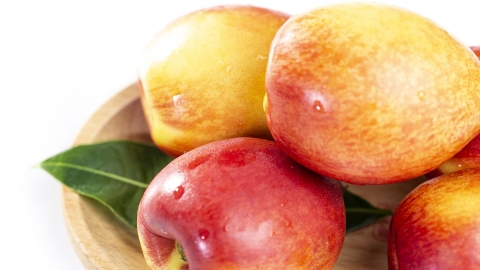Can I eat nectarines after eating Malabar spinach?
Generally speaking, it is safe to consume Malabar spinach (Basella alba) with nectarines, but moderation is advised. Detailed analysis is as follows:

Malabar spinach is rich in vitamin C, vitamin E, vitamin K, calcium, iron, potassium, and dietary fiber; nectarines contain abundant vitamin C, vitamin A, beta-carotene, pectin, carbohydrates, and minerals such as potassium and iron. From the perspective of nutritional components, there are no ingredients in these two foods that conflict with each other or produce harmful substances, so consuming them together will not adversely affect health.
Both Malabar spinach and nectarines contain vitamin C. However, nectarines have higher levels of vitamin A and beta-carotene. Vitamin A benefits eye health and helps prevent night blindness and dry eye syndrome. The vitamin E present in Malabar spinach has antioxidant properties that protect cells from damage caused by free radicals. Combining these two foods can provide a more comprehensive supply of vitamins. Although Malabar spinach and nectarines can be consumed together, moderation remains important. Malabar spinach is cooling in nature, and excessive consumption may cause gastrointestinal discomfort, such as abdominal pain and diarrhea. Nectarines contain natural sugars, and excessive consumption might elevate blood glucose levels. In particular, diabetic patients should control their intake.
Healthy individuals typically experience no significant adverse effects when consuming Malabar spinach and nectarines in moderation. However, individuals with special health conditions should carefully choose food combinations according to their own conditions and consult a physician or nutritionist when necessary to ensure dietary safety and health. In daily life, maintaining a balanced diet and diversifying food intake are key to maintaining good physical condition.






